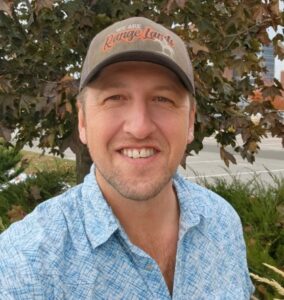Profile
About

Assistant Professor
Department: Environmental Studies
Phone: 208-284-0000
Email: jaredtalley@boisestate.edu
Office: ERB3137; Office hours by appointment
Personal Webpage: Jared Talley
Research Areas
- Environmental Philosophy
- Environmental Policy & Governance
- Philosophy of Science and Technology
- Place and Experience
- Embodied Imagination
Research Summary
I was born and raised in the Southwestern Idaho, like many generations before me, and I am deeply connected to these desert communities. My research is place-based and focuses on community collaboration in the environmental governance of the American West. I am environmental philosopher by training, but an interdisciplinary scholar by practice. I seek to better understand how diverse communities relate to the land and how this relationship poses obstacles and opportunities for collaboration and governance. In doing so, I study the role of science in collaborative policy, the role of place in environmental identity, and the role of the imagination in mediating both.
Healthy land requires healthy communities (not only human) that dwell on it. Part of being a healthy community is being a resilient community — one that is able to withstand and adapt to the changing circumstances that are all too common in our contemporary era. Helping rural communities amplify their voice in collaborative spaces allows these communities the self-determination that is needed to adapt to a changing world. The relationships built and the sheer experience of collaborating builds the resilient capacity that is needed by these communities — collaboration, itself, is a resilient praxis.
Specifically, I study grazing management and public land permitting, community-led monitoring programs, place-based environmental governance, rural environmental collaboration, conservation justice, and the imaginative experience of our natural and built environments — all in the contexts of the intermountain American West.
Collaboration Interests
Collaboration is, itself, my interest. Whether that be working with an interdisciplinary team to better understand the issues we face, working with my communities to better participate in local environmental governance, or thinking about best practices in the practice of collaboration.